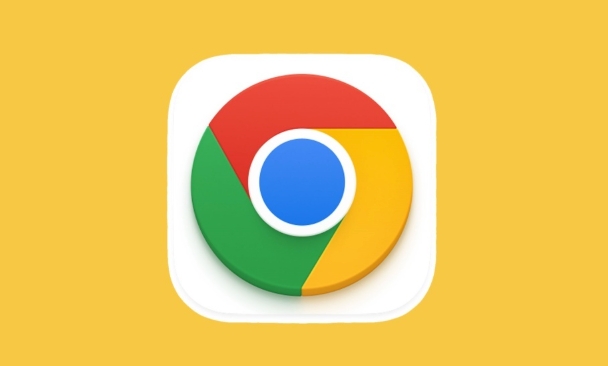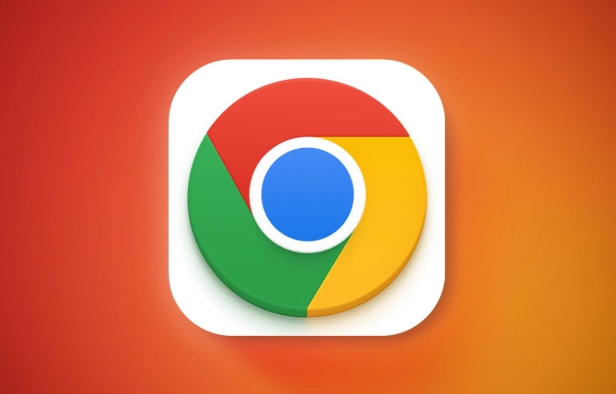How to fix a website that works in Firefox but not in Chrome
Jul 10, 2025 am 11:23 AMIf you find that the website is normal in Firefox but has problems in Chrome, it may be caused by JavaScript compatibility, CSS rendering differences, browser extensions or settings, or inconsistent feature support; 1. Use Chrome developer tools to view the console error and check whether there are undefined variables or failed loading resources; 2. Make sure that the new JavaScript features used such as async/await or class are supported by the target version, and introduce Babel translation if necessary; 3. Avoid using non-standard attributes such as document.all; 4. Use reset style sheets such as Normalize.css to reduce the default style differences; 5. Check whether you need to add CSS prefix or adjust the calculation method of the box model; 6. Try invisible mode or disable extensions to exclude third-party interference; 7. Clear cache or replace network environment to test loading problems; 8. Use Modernizr Perform feature detection and load polyfills as needed, such as whatwg-fetch. With system troubleshooting and developer tool assistance, most compatibility issues can be effectively identified and fixed.

It's not uncommon if you find your website working properly in Firefox but there are problems in Chrome. Compatibility differences between browsers are one of the common challenges in front-end development. The key is to find out which part of the code or function is not supported or behaves differently in Chrome, and then fix it in a targeted manner.

Here are some common causes and corresponding solutions to help you quickly locate and resolve problems.
Check JavaScript compatibility
Although both Chrome and Firefox are based on modern standards, they may have slightly different levels of implementation and support for certain new features. For example, some APIs are turned off by default in Chrome or need to be prefixed.

- Use the developer tools to view the console error : Open Chrome Developer Tools (F12 or right-click to check) to see if there are script errors, undefined variables, or resource that failed to load.
- Note the experimental features : If you use newer syntax such as
Promise,async/await,class, etc., make sure your target browser version supports them. Babel can be introduced for translation if necessary. - Avoid using non-standard properties : Firefox sometimes supports features in some drafts in advance, and Chrome may not have followed up.
A common example is the use of document.all , which is not recommended in Firefox and may also cause judgment logic errors in Chrome.
CSS rendering differences and layout issues
Different browsers may parse CSS slightly differently, especially when dealing with Flexbox, Grid, animation, or pseudo-elements.

- Use Reset Stylesheets : Libraries like Normalize.css can help reduce differences in browser default styles.
- Check browser prefix : Although most CSS3 properties now do not require
-webkit-or-moz-prefix, they still need to be added manually in some older browsers. - Floating and box model issues : Chrome is more stringent in computing the box model, which sometimes causes the width to exceed expectations. You can use
box-sizing: border-box;to handle it uniformly.
For example, a button centered in Firefox is left in Chrome, probably because transform or flex settings are not rigorous enough.
Browser extensions or settings affect page display
Chrome users often install ad blocking plug-ins, privacy protection tools, etc., which may affect the normal loading of web pages.
- Try invisible mode or disable extensions : Confirm whether it is because a third-party plugin prevents certain scripts or resources from loading.
- Clear cache or replace network environment : Sometimes the browser caches old version of JS/CSS files, which may also cause exceptions.
This problem is not easy to see at a glance, but it is quickly investigated and is recommended as part of the preliminary test.
Remediate compatibility issues with Polyfill or Feature Detection
If you find that a feature is only available in Firefox, consider using polyfill to simulate the feature.
- Modernizr is a good choice : it detects whether the browser supports a certain feature and loads the patch script based on the results.
- Loading Polyfill on demand : Don't introduce all patches in one go, but load according to actual needs to avoid slowing down performance.
For example, if you use fetch() to request data, you may need to use XMLHttpRequest to fallback in lower version browsers, or introduce whatwg-fetch polyfill.
Basically that's it. Although browser compatibility issues are annoying, most of them can find the cause as long as they are troubleshooting step by step. The key is to use developer tools, pay attention to console information, and keep the code robust and maintainable.
The above is the detailed content of How to fix a website that works in Firefox but not in Chrome. For more information, please follow other related articles on the PHP Chinese website!

Hot AI Tools

Undress AI Tool
Undress images for free

Undresser.AI Undress
AI-powered app for creating realistic nude photos

AI Clothes Remover
Online AI tool for removing clothes from photos.

Clothoff.io
AI clothes remover

Video Face Swap
Swap faces in any video effortlessly with our completely free AI face swap tool!

Hot Article

Hot Tools

Notepad++7.3.1
Easy-to-use and free code editor

SublimeText3 Chinese version
Chinese version, very easy to use

Zend Studio 13.0.1
Powerful PHP integrated development environment

Dreamweaver CS6
Visual web development tools

SublimeText3 Mac version
God-level code editing software (SublimeText3)

Hot Topics
 How to use Pagoda Panel for website repair and maintenance
Jun 21, 2023 pm 03:19 PM
How to use Pagoda Panel for website repair and maintenance
Jun 21, 2023 pm 03:19 PM
In the current Internet era, websites have become an important means for many companies to display and promote themselves. However, it is inevitable that some unexpected situations will cause the website to be inaccessible or have limited functions. At this time, the website needs to be repaired and maintained. This article will introduce how to use Pagoda Panel for website repair and maintenance. 1. Introduction to Pagoda Panel Pagoda Panel is a website management software running on a Linux server. It can help users quickly build a Web environment on the server operating system. The Pagoda panel integrates numerous functional modules
 Questions frequently asked by front-end interviewers: How to solve browser compatibility issues?
Mar 26, 2024 am 08:09 AM
Questions frequently asked by front-end interviewers: How to solve browser compatibility issues?
Mar 26, 2024 am 08:09 AM
In the field of front-end development, browser compatibility has always been a headache. With the continuous development of Internet technology, there are more and more types of browsers, and each browser has different ways of parsing HTML, CSS, and JavaScript. This results in web pages that may appear to be displayed in different browsers. Inconsistencies or malfunctions. Therefore, for front-end developers, how to solve browser compatibility issues has become a crucial part. Interviewers often ask in front-end interviews "How to solve browsing problems?"
 What is the difference between w3c standards and web standards?
Feb 22, 2024 pm 05:30 PM
What is the difference between w3c standards and web standards?
Feb 22, 2024 pm 05:30 PM
What is the difference between W3C standards and Web standards? Specific code examples are needed. In Web development, we often hear arguments about W3C standards and Web standards. Although they sound similar, they are actually two different concepts that refer to different concepts and specifications. This article will explain the differences between W3C standards and Web standards in detail, and provide some specific code examples to aid understanding. W3C (WorldWideWebConsortium) is a non-profit organization.
 Vue Development Notes: Avoid Common Browser Compatibility Issues
Nov 22, 2023 pm 02:10 PM
Vue Development Notes: Avoid Common Browser Compatibility Issues
Nov 22, 2023 pm 02:10 PM
Vue Development Notes: Avoid Common Browser Compatibility Issues In modern web development, Vue has become a very popular and powerful front-end framework. It provides a wealth of tools and functions that can greatly simplify the complexity of front-end development. However, although Vue works well in most modern browsers, there are still some browser compatibility issues. In order to ensure that our Vue application can run properly in various browsers, we need to pay attention to the following issues. ES5 compatibility: on some older
 Why follow web standards
Feb 18, 2024 am 10:20 AM
Why follow web standards
Feb 18, 2024 am 10:20 AM
Why follow web standards and need specific code examples? With the continuous development of the Internet, the application of web standards is becoming more and more widespread. So, do you know why you should follow web standards? In this article, we'll explore the importance of web standards in detail and provide some concrete code examples. First, what are web standards? Simply put, Web standards are a set of specifications developed by the W3C organization to enable web pages to have consistent presentation effects on different browsers and devices. Following web standards allows me to
 Understanding CSS Case Sensitivity for Cross-Browser Compatibility
Jun 20, 2025 am 12:37 AM
Understanding CSS Case Sensitivity for Cross-Browser Compatibility
Jun 20, 2025 am 12:37 AM
CSScasesensitivityimpactscross-browsercompatibilitybycausinginconsistentrenderingduetodifferencesinhowbrowsershandlecaseinselectorsandcustomproperties.Tonavigatethis,developersshould:1)Useconsistentnamingconventions,2)Testacrossbrowsers,3)Implementli
 @keyframes CSS: What is the browser compatibility?
Jun 20, 2025 am 12:35 AM
@keyframes CSS: What is the browser compatibility?
Jun 20, 2025 am 12:35 AM
@keyframes is very compatible in modern browsers, but older browsers need special attention. 1. Chrome, Firefox, Safari, Edge and Opera are fully supported from specific versions, without prefixes. 2. IE9 and IE10 require the -ms-prefix, which is not supported by IE8 and earlier versions.
 How to fix a website that works in Firefox but not in Chrome
Jul 10, 2025 am 11:23 AM
How to fix a website that works in Firefox but not in Chrome
Jul 10, 2025 am 11:23 AM
If you find that the website is normal in Firefox but has problems in Chrome, it may be caused by JavaScript compatibility, CSS rendering differences, browser extensions or settings, or inconsistent feature support; 1. Use Chrome developer tools to view the console error and check whether there are undefined variables or failed loading resources; 2. Ensure that the new JavaScript features used such as async/await or class are supported by the target version, and introduce Babel translation if necessary; 3. Avoid using non-standard attributes such as document.all; 4. Use reset style sheets such as Normalize.css to reduce the default style differences; 5. Check whether you need to add CSS prefix or tune






